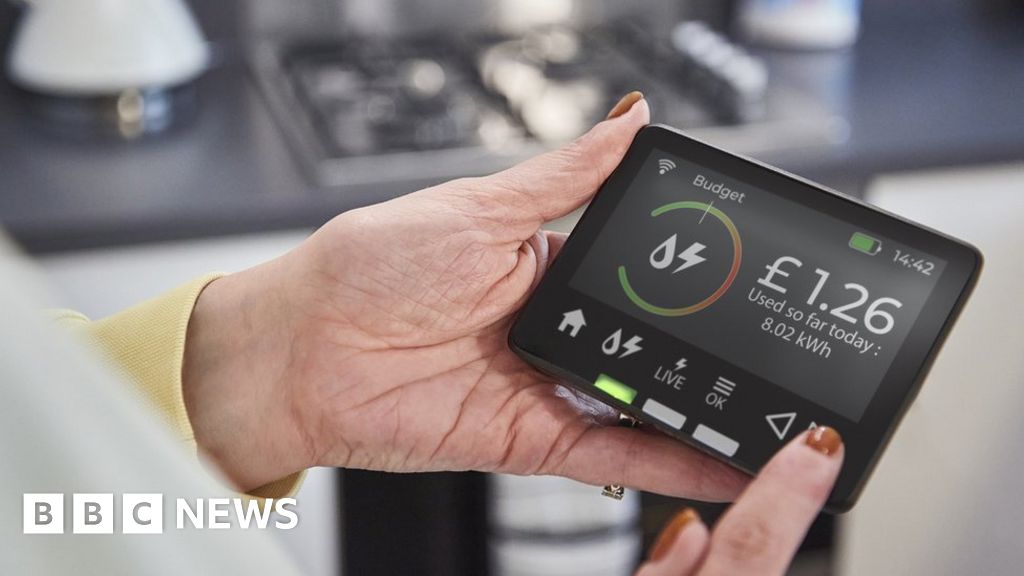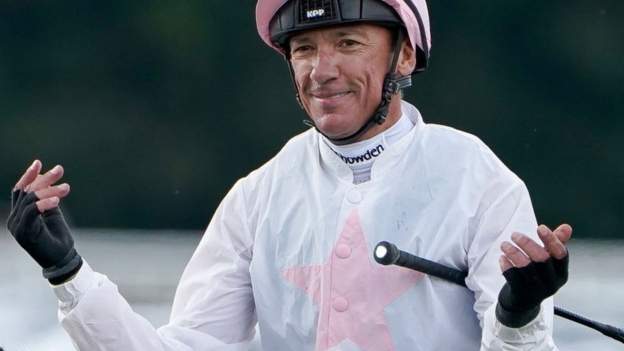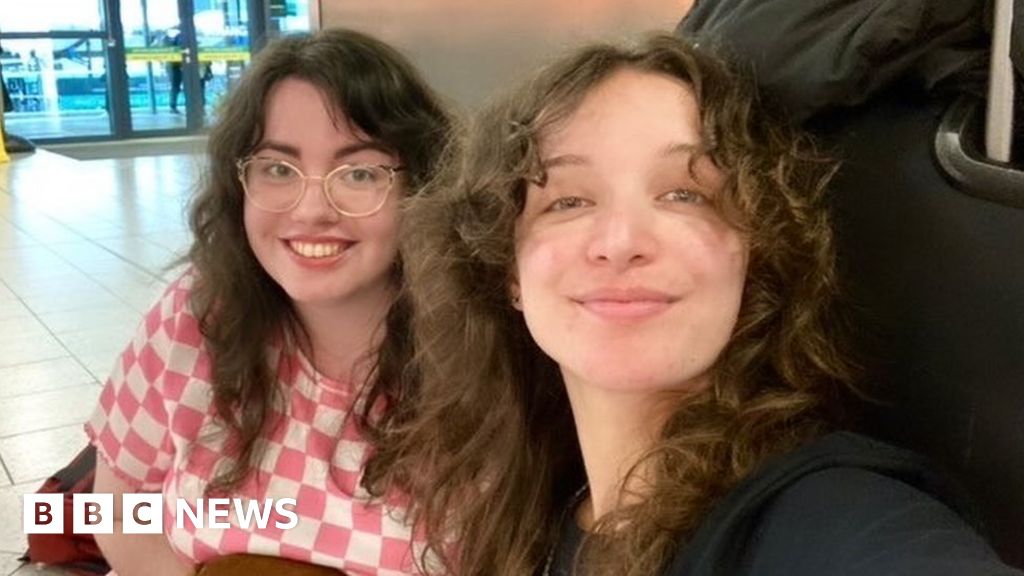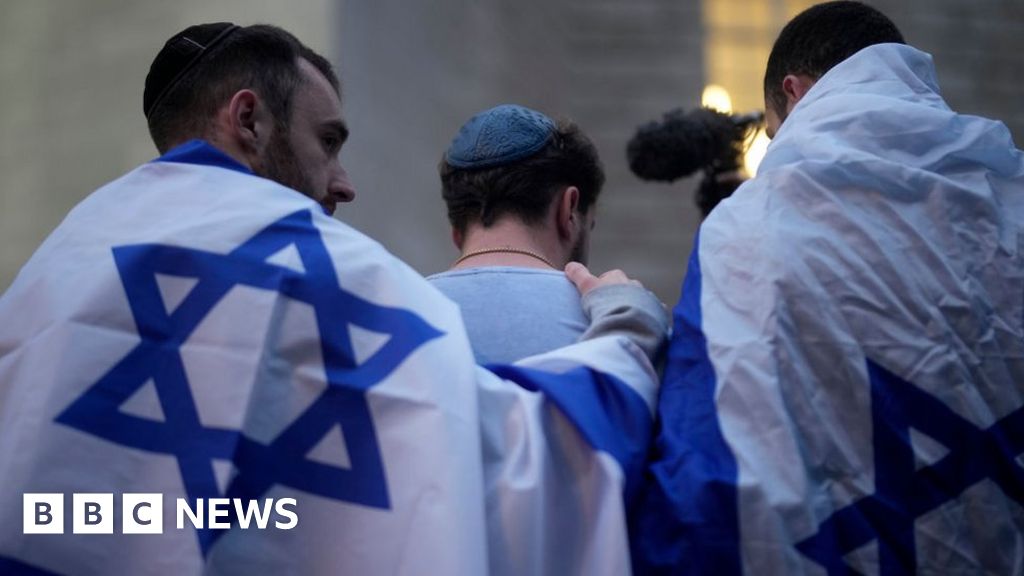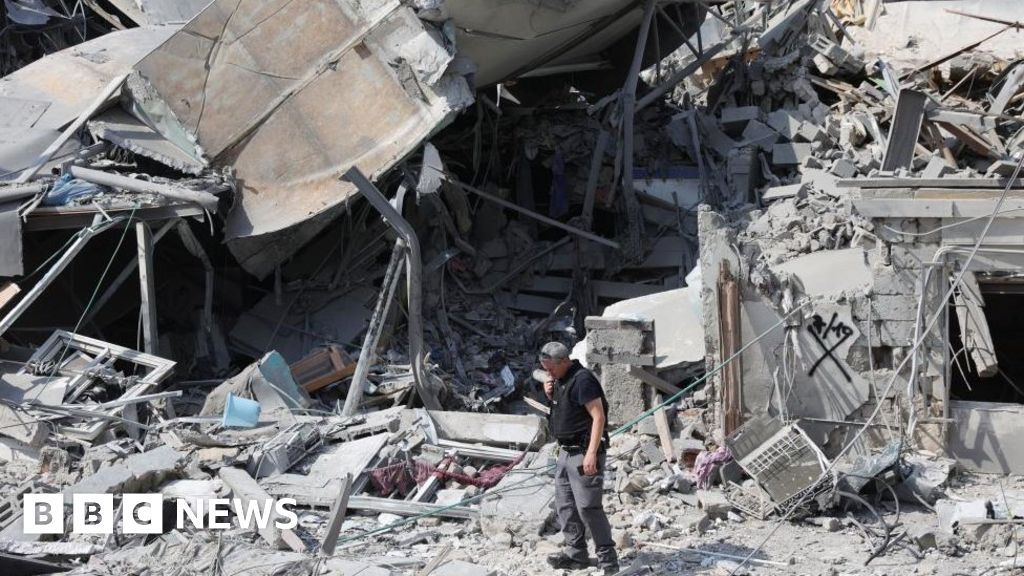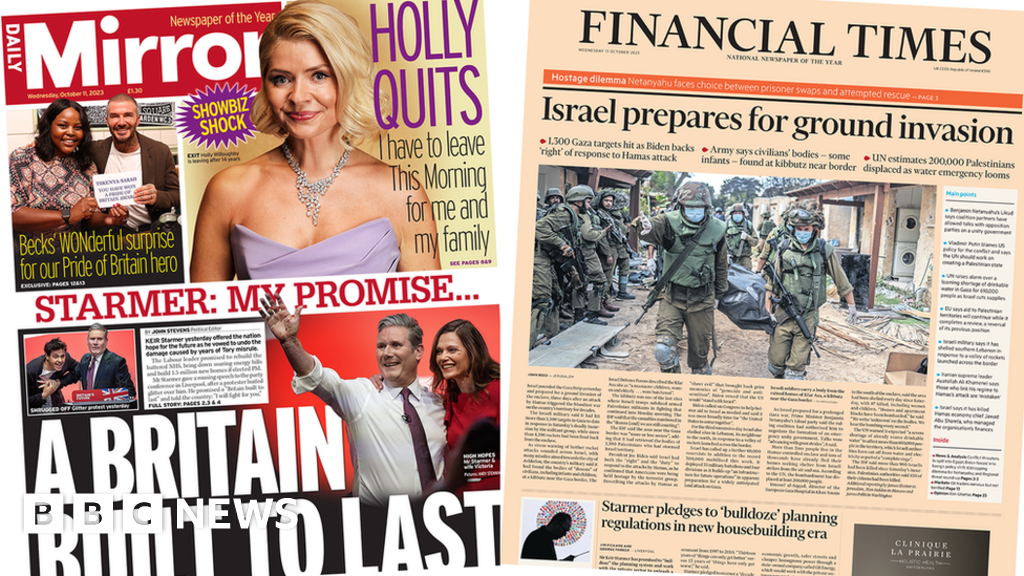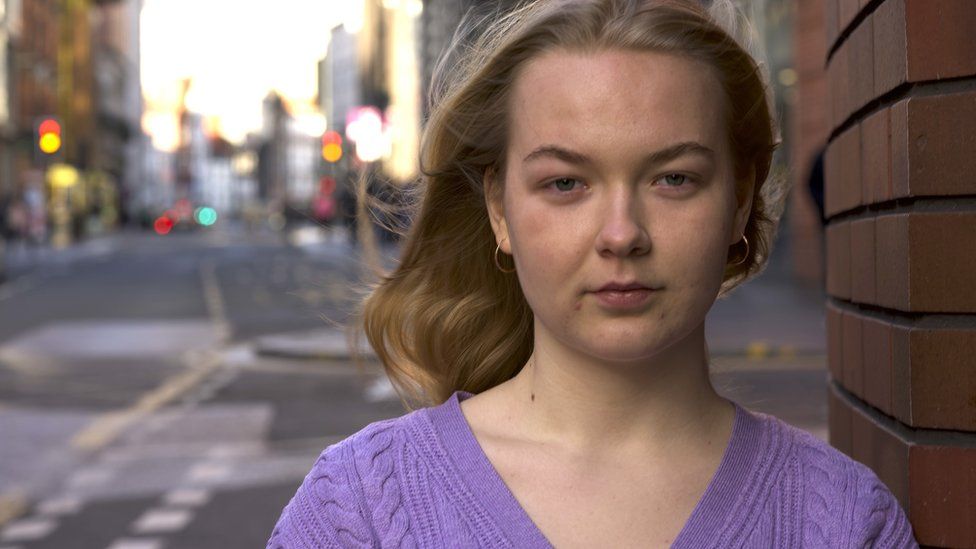
Olekssandra has loved Eurovision since she was a child
By Yazmina García
BBC News
More than 500 volunteers will welcome guests and scan tickets at the Eurovision song contest in Liverpool this week. Many are from Ukraine and here they explain why they’re excited about the event and want to help out in the city hosting it on their home country’s behalf.
‘Even if there’s war in our country, we’re still living’
Olekssandra fled Ukraine and the Russian invasion a year ago and found a host family in Cambridge. Her parents remained in their home country and her eyes cloud when she speaks about them.
“They wanted me to have my own life, a safe life,” says the 19-year-old, who says the UK is very different to how she had imagined it.
“I just expected people to be different, more closed in themselves. But when I arrived, so many people wanted to help me, like my host family – they did so much for me.”
Four months ago she moved to finish her language studies at the University of Liverpool. It was there she first heard about the volunteering programme.
She loves Eurovision and as a child, she used to sneak out of bed and stay up late at night to watch it.
“I think my first memory of it was when [Ukrainian singer] Ruslana won in 2004, I still re-watch it.”
Her language skills will prove to be a valuable asset when she greets visitors at EuroFest – the cultural programme that takes place in the 14 days leading up to the grand final, which showcases Ukrainian art and music.
“Maybe that’s how I can pay back all these people who gave me a job and a home,” says Olekssandra. “I hope to make a difference. Even if there’s war in our country, we’re still here, we are still living.”
‘I hope it improves my confidence’
Olena hopes volunteering will improve her confidence and language skills
Though her 14-year-old daughter has adapted more easily to life in the UK, Olena says it’s been a struggle for her, due to the language barrier.
She hopes that volunteering on the welcome team at one of the information points in Liverpool city centre will help her feel more settled.
“I want to be part of Eurovision this year because it will make me feel closer to my home when I am far away,” Olena explains.
She and her daughter arrived in Liverpool last May, having first fled to Poland, where they applied for visas. In Ukraine, she had a managing position at a pharmaceutical company. But without a qualification in English, she can’t get work in her field in the UK.
“I studied English at university, but didn’t use it in 20 years. I am going to [language] classes and volunteer at a charity shop three days a week,” says Olena, who is originally from Poltava.
It was her daughter who encouraged her to join the Eurovision volunteering programme as an opportunity to improve her English. She hopes her mum will enjoy the experience for the both of them since she is too young to sign up.
So far, one of the things Olena has enjoyed most during her training has been learning about Liverpool’s history. But, she adds, “it takes some time to get used to the accent”.
“I hope this experience improves my confidence.”
‘Eurovision unites people’
Heorhii would like to start a career in the music industry
For Heorhii, taking part in Eurovision is almost an act of activism.
Originally from Kyiv, he was living in the Polish city of Poznan when the war started. On the first night of the invasion he travelled with a friend to the border with Ukraine to provide their compatriots with food and shelter.
“I was a bit of a translator, some people were offering jobs or accommodation and I just put them in contact.”
He landed in London less than a year ago, where he didn’t have much trouble finding a job in hospitality. But after couch-surfing for a few days he realised he would have a better chance to find affordable accommodation in Liverpool, where he had some family friends. He has been there since June.
“Moving is hard, but I am used to it. Coming to the UK was an opportunity to thrive,” he says.
Although he studied international relations, his dream job would be in the music industry as an event manager or music promoter. Back in Poland, he organised music events to raise funds for the war effort – something that he continues to do in Liverpool.
He hopes the Eurovision experience will help him start a career. He will be offering information at the Soloveiko Exhibition, one of the many art installations of Eurofest.
“I’m 24 and still trying to find what I want to do. And music is one of my passions. If I’m happy, I listen to music, if I’m sad, I listen to music. Music helps in every situation.
“I love that Eurovision brings people from different parts of the world together – united by music.”
‘We’re really a big, big Eurovision family’
Image source, Handout
Alisa is finally fulfilling her dream of being a Eurovision volunteer
Eurovision was held in Kyiv in 2017 but that year, an IT problem prevented Alisa and hundreds of others from volunteering.
This year she is really excited about her second chance to volunteer. The 24-year-old, who left Dnipro nine months ago, now lives near Aberystwyth in Wales, where she will be providing information at one of the art installations dotted around the town.
“I understand Ukrainian culture and now I understand British culture, so I can easily introduce Ukrainian culture to British people,” she says.
“I want people to understand that Ukrainians are people of freedom. We are unstoppable and we are unbreakable.”
Alisa has never missed a show and has a Eurovision playlist with her favourite songs that she adds to each year. For her, the contest means watching TV in the family kitchen, tea in one hand, phone in the other, ready to vote.
“It’s like a tradition for us,” she adds.
This will be the first year she will spend it away from home and instead, she says, she will probably watch it from one of the fan zones.
Volunteering has already given her the opportunity to meet new friends and embed herself a bit more into British culture.
“I think of Britain as my second home now. I feel safe here,” she says.
“We have a bit of a community and we have a Facebook group. In there we all love music and we all love Eurovision, so we are already united by the same idea and mission. We’re really a big, big Eurovision family.”
‘It’s important to represent my country’
Image source, Handout
Hanna is excited to be welcoming guests to the Eurovision Village
Hanna was happy Ukraine won the contest last year but the fact that this year’s show can’t be organised in her home country appalls her.
So she decided she wanted to volunteer to take part in the festivities in Liverpool, where she has been living with her sister for almost a year.
“It’s unfair, Eurovision has always been a big deal for Ukraine,” says the 22-year-old, who is studying for a college degree in business and finance.
“I feel that as a Ukrainian, it’s important for to represent my country somehow and to give as much as I can.”
She is welcoming guests to the Eurovision Village, the dedicated fan zone at Pier Head.
“I’m excited about that, a lot of people are coming and the city is going to transform,” she explains.
“People don’t know a lot about Ukraine from a cultural side, we have a long and rich history, and this is our chance to show we’re Europeans. If I can share any of that with just one visitor, it would be worth it.”
All photos by Yazmina Garcia unless otherwise stated
Related Topics
Around the BBC
Related Internet Links
The BBC is not responsible for the content of external sites.





